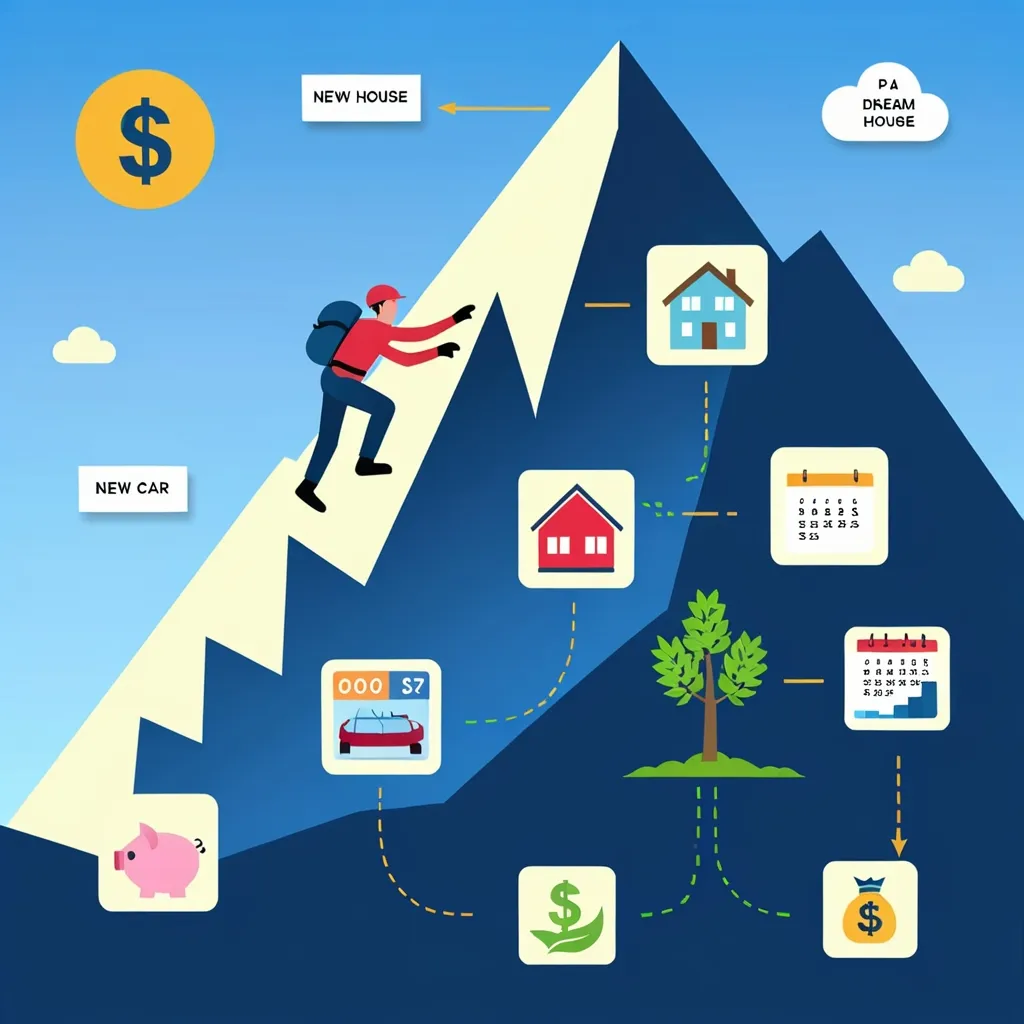Budgeting efficiently for those big purchases doesn’t have to feel like climbing Everest. It boils down to having a solid plan and sticking to it. Simple, right? With some easy, practical steps, you can set the stage for financial success without breaking a sweat. Whether it’s that shiny new car, an epic vacation, or finally getting the keys to your new home, here’s how to take the financial stress out of the equation.
Get Clear on What You Want and Its Price Tag
First things first, know exactly what you are saving for. Make a list of the big-ticket items and hunt down their prices. If you’re gunning for a new car, dive into the world of car models, insurance rates, and maintenance costs. Don’t forget, a dream purchase may become pricier over time, so factor in inflation and possible price hikes.
Set Goals That Actually Work
Having a goal is great, but ensuring it’s SMART (Specific, Measurable, Achievable, Relevant, and Time-bound) is gold. Instead of saying, “I want to save more money,” go for something like, “I’m setting aside $200 a month for the next two years for my dream vacation.” Put this goal somewhere you can’t miss, like the fridge door or as a phone reminder. Regularly checking in on this goal keeps things on track and lets you tweak it if needed.
Know Your Priorities
Before diving into savings mode, make sure your essentials are covered—think rent, gas, food, and retirement savings. Allocating funds for your 401k and emergency stash first ensures that when you start saving for that big buy, you’re not skimping on necessities.
Embrace the 50/20/30 Rule
This rule is a lifesaver. Assign 50% of your income to necessities like rent and food, 20% to savings, and let yourself have fun with the remaining 30%. A bit tight on the 20% savings? See what you can cut from the 30% personal spending bucket.
Pay Yourself Before Anything Else
Before hitting the shops or sorting out your bills, stash away some cash for savings. Automate this process by setting up a direct deposit from your paycheck into your savings account. This way, the money grows without giving you the chance to spend it first.
Little Drops Fill the Bucket
Never underestimate the power of small contributions. Skip that $7 coffee and throw it into your savings jar instead. These minor sacrifices add up and can make a significant impact over time.
Boost Your Income
Finding extra income streams can fast-track your savings goals. Explore passive income sources like investments or rental properties. These might take some effort to start but can be pretty low-maintenance once set up.
Short-Term Investments Can Help
Short-term investments can give your savings a nice boost without locking up funds for too long. High-interest savings accounts or certificates of deposit (CDs) are great for making your money grow faster thanks to compound interest.
Lean on Technology
Today’s digital world is packed with helpful tools and apps designed to streamline your savings and budgeting efforts. From apps that round up your spare change to those tracking your expenses, these can be invaluable for staying on course with your financial goals.
Plan and Assess Frequently
Big buys need thoughtful planning. Some things on your wish list might need immediate attention, while others can be put off for a bit. Figure out the full cost and how much you can fork out right now. If you need a loan, check your debt-to-income ratio so you know where you stand.
A Systematic Savings Plan Is Your Best Friend
If there’s some time before you make your big purchase, draft a systematic savings plan. Set aside a specific amount each month and consider using high-interest savings accounts or CDs to keep your money working for you and to hedge against inflation.
Consider Your Financing Options Wisely
When financing is a must, get to grips with the loan terms and what they mean for you. With installment loans, your credit score plays a big role in the terms you get. Always read the fine print and be wary of “buy now, pay later” deals that might have hidden costs.
Improve Your Credit Score
A better credit score can mean lower interest rates on loans, saving you a ton over time. Use the planning phase to bump up your score by paying off any outstanding debts and keeping up with credit card payments.
Don’t Forget Additional Costs
Big purchases often come with hidden extras. For a new car, that includes insurance, maintenance, and registration fees. Plan for these in your budget to avoid any nasty surprises.
Regular Reviews and Adjustments
Budgeting isn’t a set-and-forget task. Keep an eye on your progress and tweak your plan when necessary. This flexible approach helps you stay on track and adapt to any changes in your financial landscape.
By integrating these strategies, you can budget effectively for those milestone purchases without falling into a debt trap. Remember, the journey of saving up for something significant can be just as rewarding as the final purchasing moment. With the right steps, you’re setting yourself up for financial success and peace of mind.






